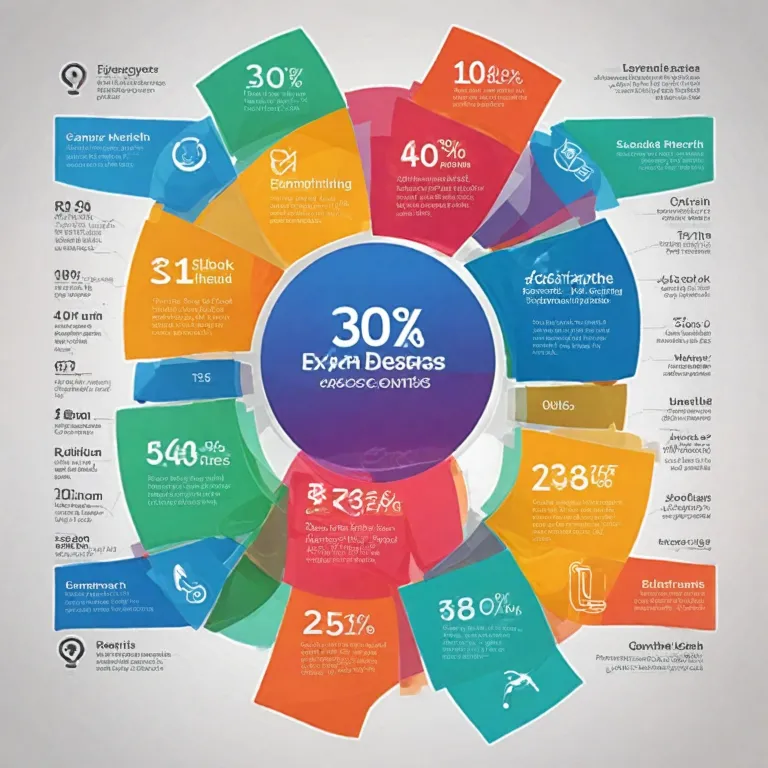The Role of AI in Managing Lifestyle Spending Accounts
AI's Transformative Role in Lifestyle Spending Accounts
Artificial intelligence is increasingly becoming a cornerstone in managing lifestyle spending accounts (LSAs), offering a new dimension of efficiency and precision. As companies strive to support employees in their wellness and professional development, AI-powered tools are revolutionizing how expenses are tracked and verified. This transformation not only aligns with company values but also enhances the overall employee experience.
Employers choose to integrate AI into their LSA management systems to streamline the process of identifying eligible expenses. By automating the verification of expenses eligible for reimbursement, AI reduces the administrative burden on human resources teams. This allows HR professionals to focus more on strategic initiatives that promote employee well-being and less on tedious paperwork.
AI's role extends beyond mere automation. It provides insights into spending patterns, helping companies tailor their benefits offerings to better meet the needs of their workforce. For instance, if data shows a high demand for gym memberships or mental health services, employers can adjust their benefits packages accordingly. This data-driven approach ensures that the benefits offered are not only comprehensive but also relevant to the employees' lifestyle and health needs.
However, the integration of AI in managing LSAs is not without its challenges. Companies must navigate potential issues such as data privacy and the accuracy of AI algorithms. These challenges require careful consideration and strategic planning to ensure that the implementation of AI truly enhances the management of lifestyle spending accounts without compromising employee trust.
For those interested in understanding more about the implications of AI in workplace dynamics, exploring how AI can address workplace issues can provide further insights into the broader impact of AI in human resources.
Defining Lifestyle Spending Accounts
Clarifying Lifestyle Spending Accounts
Lifestyle Spending Accounts (LSAs) have emerged as a popular perk offered by employers to support employee wellness and work-life balance. These accounts are distinctive in that they provide employees with a flexible spending option that can be tailored to different areas of their personal and professional lives.
An LSA allows employers to allocate pre-tax or post-tax funds that employees can use for a variety of expenses aimed at enhancing their lifestyle. These accounts serve as a means of providing benefits that go beyond traditional financial and health support, addressing a broader scope of professional development, gym memberships, mental health services, and even lifestyle enhancements that align with company values.
To make the most of such accounts, it is crucial to define what expenses are eligible for reimbursement. While some companies might outline categories, others give employees the freedom to choose where they want to spend. In any case, aligning eligible expenses with both employee preferences and company values is vital to maximize the effectiveness of these accounts and strengthen company culture.
Understanding these nuances is key to leveraging LSAs successfully, making life easier for employers who offer employees the opportunity to enhance their physical and mental well-being. By clearly defining these parameters, companies can ensure that LSAs serve their intended purpose and further support employees in achieving holistic wellness.
In a broader context, the role of artificial intelligence in managing these spending accounts is becoming increasingly prominent. AI promises to bring about greater efficiency in defining and verifying eligible expenses, an emerging trend that could solve potential challenges many businesses face. Explore how AI can impact your workplace to stay informed about future benefits and solutions.
Identifying Eligible Expenses
Determining Which Expenses Qualify
To effectively manage Lifestyle Spending Accounts (LSAs), it's crucial for employers to clearly outline which expenses qualify as eligible for reimbursement. Lifestyle spending focuses on enhancing employee wellness, covering services related to physical health, mental well-being, and even professional development. By defining eligible expenses, employers support employees in ways that align with company values while ensuring financial stability.
There are various categories of expenses that companies typically consider eligible within an LSA framework. These can include:
- Physical Health: Expenses like gym memberships and wellness programs may be included, given the emphasis on employee health.
- Mental Health: Covering counseling sessions or meditation courses can help support employees' mental well-being.
- Professional Development: Courses or training that contribute to the growth of employees' skills are often considered relevant.
Employers choose which specific expenses are eligible based on their company's priorities and culture. For instance, a tech startup might prioritize professional development, while a corporate firm could focus more on physical and mental health benefits.
To facilitate this process, AI-powered tools can play a significant role. They not only help verify expenses but also ensure compliance with internal policies. AI can sift through receipts, compare them against pre-set eligibility criteria, and provide quick verification, which enhances trust in the system. The implementation of such tools needs careful planning, as discussed
here, to seamlessly integrate them within existing frameworks.
It's also important to note how LSAs differ from more traditional accounts like Health Savings Accounts (HSAs) or Flexible Spending Accounts (FSAs). While HSAs and FSAs primarily cover medical expenses, LSAs are more geared towards overall wellness, offering benefits that are both pre-tax and post-tax, tailored to lifestyle choices instead of just health-related expenses.
Overall, identifying eligible expenses for LSAs requires a strategic approach, taking into account the company's objectives and the diverse needs of the workforce. Through innovative AI solutions, companies can streamline the process, ensuring employees spend on initiatives that truly enhance their personal and professional lives.
Transforming Expense Verification with AI Solutions
In the realm of Lifestyle Spending Accounts (LSAs), technology is continuously evolving to better support employees and employers alike. AI-powered tools have emerged as significant assets, streamlining the process of expense verification and offering precision in managing financial matters linked to LSAs.
Artificial intelligence systems are tasked with ensuring that expenses are indeed eligible for reimbursement. This involves analyzing a variety of spending categories such as wellness services, gym memberships, and professional development courses, which are pivotal to the overall well-being of employees. The sophistication of AI allows it to swiftly process and verify submitted expenses, reducing the administrative burden on company personnel and increasing the efficiency of managing spending accounts.
Employers may choose to incorporate AI-driven solutions into their financial management processes to align with company values, enhancing both support and trust among employees. By automating verification, organizations can also prevent errors and potential financial fraud, safeguarding their resources.
Moreover, the integration of AI into LSAs aids in aligning spending patterns with company objectives. AI can flag unusual expense claims and ensure compliance with internal policies, thus promoting a well-organized approach to offering employees LSA benefits. Through its ability to process large volumes of data, AI can provide insights into how employees spend their lifestyle allocations, helping employers make informed decisions about future benefit offerings.
In many cases, the adoption of AI-powered solutions in managing LSAs has resulted in increased employee satisfaction. As these systems reduce manual workload, employees can focus more on their core job responsibilities while still enjoying the benefits of efficient LSA management. Companies that leverage AI in this capacity often report improved employee engagement, as the systems also facilitate more flexible and personalized spending options that cater to both physical and mental health.
Ultimately, the advent of AI in expense verification represents a vital progression in the operation of Lifestyle Spending Accounts, fostering a well-rounded approach to employee wellness and financial management in today's work environment.
Challenges in Implementing AI for Expense Management
Facing Hurdles with AI in Expense Management
Adopting artificial intelligence for managing Lifestyle Spending Accounts (LSAs) presents several challenges. Although AI-powered tools offer significant benefits, these systems can also generate less-than-optimal user experiences for both employees and employers.
One of the main obstacles is ensuring that the AI systems accurately identify eligible expenses. With the diverse range of spending options—from gym memberships to mental health services—validating these claims without errors requires sophisticated algorithms. Financial discrepancies can arise if the AI system misinterprets the subtleties in transaction descriptions or fails to update eligible reimbursement criteria that align with evolving company values.
Moreover, as employees spend across various lifestyle categories, employers need to maintain transparency and trust in AI systems. This transparency is crucial in avoiding any perception of bias or unfairness. AI should support employees by accurately processing their expenses and offering pre-tax or post-tax benefits, as opposed to creating additional hurdles in claiming their wellness benefits.
Employers must also confront data privacy and security issues, which accompany the integration of AI in expense management. Safeguarding employees' financial and personal data is paramount. Companies need to ensure robust security measures to protect the information stored within their systems.
Lastly, the implementation of AI in LSAs could lead to an initial financial burden. Developing and integrating AI-powered solutions may require significant upfront investments. These costs might pose a challenge to companies looking to streamline their operations while managing expenses eligible for employee benefits effectively.
As with any technology, overcoming these hurdles involves continuous improvement and refinement to align AI functionalities with the needs of evolving workplace environments, ultimately offering employees a seamless and efficient experience while managing their lifestyle spending accounts.
Future Trends in AI and Lifestyle Spending Accounts
Anticipating the Evolution of AI in Lifestyle Spending Accounts
As companies continue to leverage artificial intelligence in the management of lifestyle spending accounts (LSAs), the future holds promising developments. Employers are keen to harness AI's potential to streamline processes, reduce administrative burdens, and enhance employee satisfaction. These advancements in technology are poised to bring several key benefits.
Firstly, AI is expected to bolster the customization of LSAs, aligning offerings more closely with company values and employee needs. By analyzing data patterns and employee preferences, AI can help employers tailor lifestyle benefits related to wellness, mental and physical health, and professional development. This personalized approach ensures that employees spend their allowances on expenses that truly support their goals and well-being.
Moreover, the integration of AI in spending account systems will likely improve the accuracy of eligible expense verification. AI-powered tools can rapidly identify eligible reimbursements, ensuring compliance with company and financial regulations. As AI algorithms become more sophisticated, the system’s ability to recognize various types of expenses eligible for inclusion in LSAs, such as gym memberships or wellness services, will enhance.
Employers may also face challenges in maintaining AI systems, bridging the gap between technology and human oversight. Balancing automation with human intervention is crucial for success. This will necessitate ongoing support and training for HR departments to maximize the benefits of AI tools in financial management while adhering to ethical standards.
Looking ahead, AI’s role will likely expand into the healthcare sector, impacting HSAs and FSAs alongside LSAs by offering innovative solutions for managing health-related expenses. The focus on pre-tax and post-tax spending options will continue to evolve, driven by regulatory changes and technological advancements.
In conclusion, while AI offers exciting possibilities for managing lifestyle spending accounts, its successful implementation requires a strategic approach. Staying informed about AI advancements and adapting to new technologies will be key to keeping pace with future benefits that support employee wellness and company efficiency.














